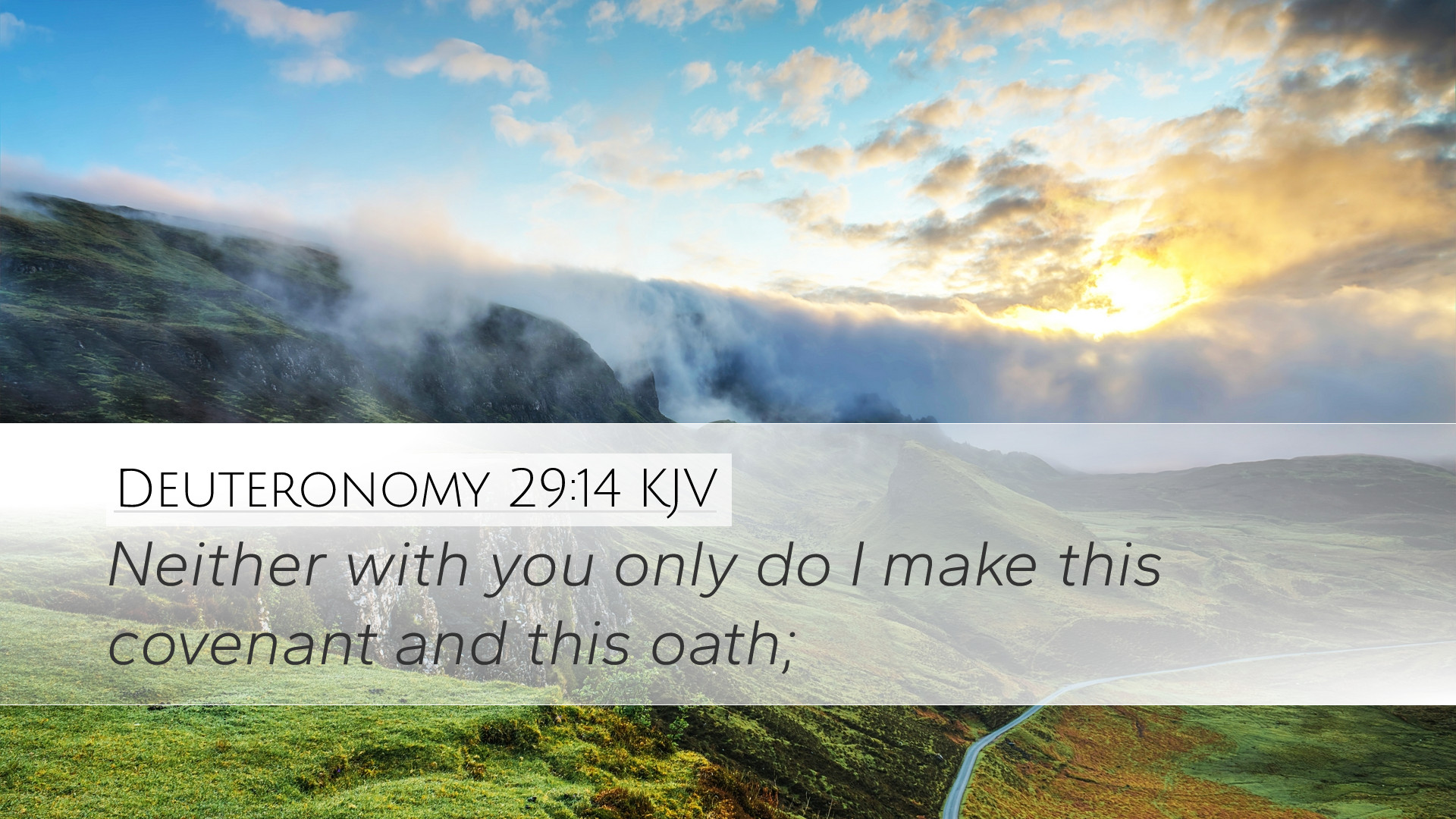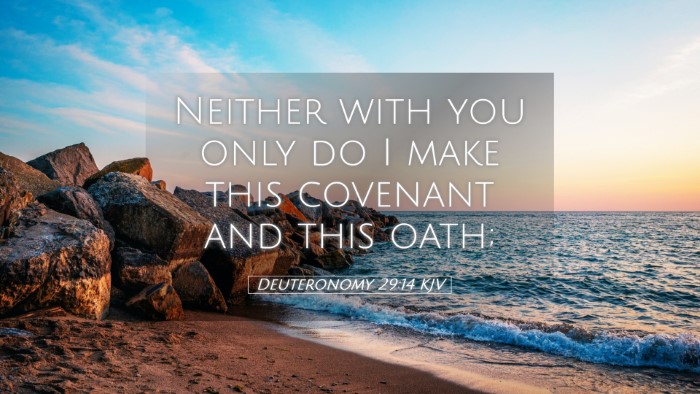Commentary on Deuteronomy 29:14
Verse: Deuteronomy 29:14 - "Neither with you only do I make this covenant and this oath;"
This verse is located within the broader context of Moses' address to the Israelites as they are on the brink of entering the Promised Land. The covenant being referenced is crucial to understanding God's relationship with His chosen people.
Contextual Overview
The surrounding chapters detail the terms of the covenant that lay ahead for the people of Israel. Here, in chapter 29, Moses reiterates the importance of this covenant while emphasizing its communal nature. He points out that the covenant does not only apply to those present but also to those yet to come.
Insights from Commentaries
-
Matthew Henry
Henry emphasizes the assurance that the covenant is inclusive, extending beyond the immediate audience to future generations. He highlights how this establishes a legacy of faith and responsibility among God's people.
-
Albert Barnes
Barnes notes that this covenant is not only a legal agreement but embodies a deep, relational commitment between God and His people. He stresses that the blessings and curses delineated throughout the chapters are applicable to all who would enter into this covenant relationship.
-
Adam Clarke
Clarke discusses the solemnity of the covenant-making process, indicating that such agreements were often accompanied by oaths that reinforced the gravity of the commitments involved. He suggests that this emphasis on collective responsibility indicates that every individual within the community has a stake in the covenant.
Theological Implications
This verse underlines the theological principle of corporate identity in God's covenant. The Israelites are seen as a collective entity in their covenant commitment rather than isolated individuals. This principle echoes throughout Scripture, ultimately culminating in the New Covenant through Christ, which invites all of humanity into a relational covenant with God.
Spiritual Applications
-
Integrity of Commitment:
For pastors and leaders, it reminds us of the importance of integrity in the commitments we make both to God and our communities.
-
Intergenerational Responsibility:
It teaches congregations the importance of considering future generations. The spiritual health of one's community should be a priority, allowing for the faith to be passed down through generations.
-
Unity in Diversity:
The inclusion of future generations and different community demographics reflects the diversity of the body of Christ, where all are equally welcomed into the covenant.
Conclusion
Ultimately, Deuteronomy 29:14 serves as a profound reminder of the durable and dynamic nature of God's covenant. It compels both individual and communal reflection upon one's role within the ongoing narrative of God's engagement with humanity. As leaders and scholars engage with this text, it provides fertile ground for discussions around commitment, legacy, and responsibility in faith.


